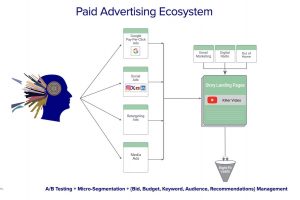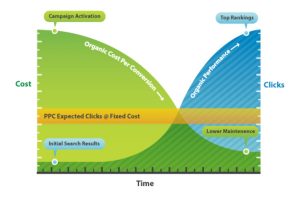
As a Pittsburgh-based paid advertising agency, we have adapted to the technological changes happening in the industry. Here are some SEM best practices that we regularly use to create and manage top converting campaigns for our clients.


As a Pittsburgh-based paid advertising agency, we have adapted to the technological changes happening in the industry. Here are some SEM best practices that we regularly use to create and manage top converting campaigns for our clients.

Until recently, the battle for consumer attention on digital devices and platforms was led by Google, Bing, Facebook, Instagram, LinkedIn and Twitter – and to a lesser extent by Pinterest and Snapchat. The entry of Amazon dramatically changes the dynamic of online advertising. It is now the third largest digital advertising platform in the US. […]

Search is one of the most frequently used online tools among US adults. A 2012 Pew Internet Survey found that 91% of adults use search engines to find information on the Web. This survey also revealed that younger and more educated people, meaning current or prospective college students, are most likely to use search engines. […]

When it comes to a paid search (PPC) campaign, it’s not just important to make sure that your ads are seen. It’s important to make sure that they’re seen by the right people. Your goal is to ensure that the people who see and click on your ads are likely to connect with you and […]

Retargeting is a form of online advertising that can help you keep your brand in front of prospects or customers after they leave your website. Did you know that 98% of visitors leave websites without converting?! That means that for every 100 visitors to your website, only two are likely to take a next step […]

Many people approach PPC and SEO as completely separate strategies. But if your PPC and SEO campaigns aren’t talking to each other, you’re wasting time and money. It’s important to share insights learned in each area to avoid duplicated efforts and missed opportunities. When used strategically, PPC can actually help your SEO strategy. Here are […]

Earlier this month, Google announced a significant change to their AdWords advertising platform – “Enhanced Campaigns.” The new functionality of “Enhanced Campaigns” allows for more efficient campaign management when advertising across multiple devices – PCs, laptops, tablets, smartphones, hybrid devices, mini-tablets, and more. Here’s a quick look at the specifics behind this change. Why “Enhanced […]

Are you seeing a decline in visits to your website this month? Did that decline, perhaps, begin in November?
Do not fear! You’re probably part of one of many industries that feel the effect of seasonal traffic. For most, December is the worst month.

At Elliance, we believe that a mix of smart website structure and content, search engine optimization and pay per click (PPC) work can effectively grow the pool of international prospects.
Here are some areas to focus on when you consider a PPC campaign for recruiting international students.

If you’ve ever written a pay-per-click (PPC) ad, then you know how hard it is to cram an eye-popping, attention-grabbing, conversion-cranking message into a tiny, little space The 25-character headline and 70-character description space doesn’t seem so small until you try to insert your text into Google and run over the character limit! Writing successful […]